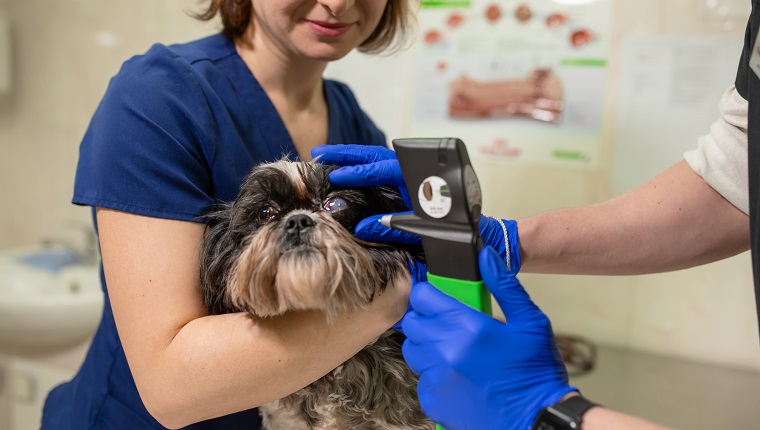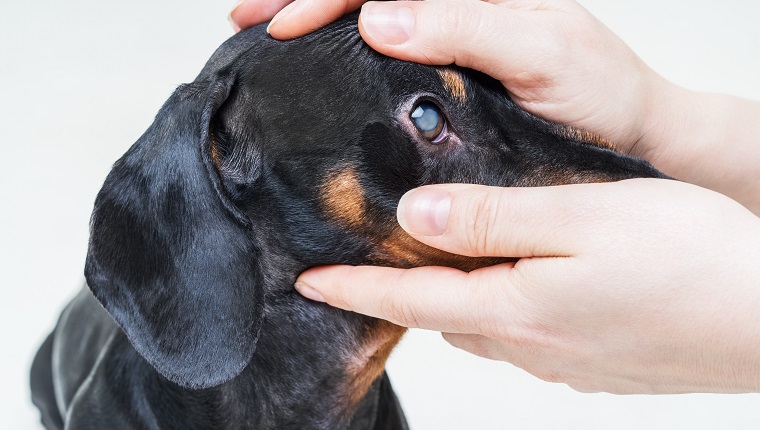Glaucoma in dogs is a condition where too much pressure is placed on one or both eyes. It can end up damaging both the optic nerve and the retina. Loss of vision and even blindness can result if dogs don’t receive treatment in time.
Certain dog breeds are more likely to develop glaucoma, including Cocker Spaniels, Dalmatians, and Boston Terriers.

If you see signs of vision issues or eye irregularities in your dog, then you must get to a veterinarian for a proper diagnosis and treatment. Here’s what you should know about the symptoms, causes, and treatments for glaucoma in dogs.
Symptoms Of Glaucoma In Dogs
Glaucoma in dogs presents itself in a range of symptoms that affect the eye area.
Some of the most common symptoms include:
- Discharge from the eye
- Swollen eyeball
- Cloudy eyes
- Rubbing the eye excessively
- Showing signs of vision loss
Causes Of Glaucoma In Dogs

Glaucoma in dogs happens when the fluid in the eyes doesn’t drain at a sufficient rate.
There are two types of glaucoma that a dog might suffer from — primary and secondary.
In cases of primary glaucoma, drainage issues cause pressure to build up in the eye. This is an inherited condition.
In cases of secondary glaucoma, the drainage of the fluid is blocked, which again causes pressure to build up in the eye. It’s caused by infection or injury to the eye.
Treatments For Glaucoma In Dogs
If your dog veterinarian suspects that your dog is suffering from glaucoma, they’ll carry out a full eye examination. Your vet will also want to know about your dog’s medical history and any specific symptoms you have noticed.
Vets can also measure the pressure levels of the eyes using a device called a tonometer.
Once the vet confirms their diagnosis, the course of treatment could involve medication that will cause the pressure of the eye to drop. In more serious cases, dogs may require surgery.
If a dog experiences a degree of vision loss due to the condition, your vet can help advise you on any changes you should make to your home environment so the dog can safely move around.
Has your dog been diagnosed with glaucoma? What treatment did your vet give your dog? Let us know in the comments section below!









